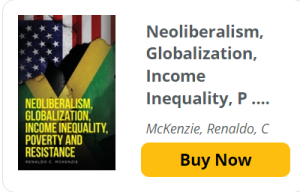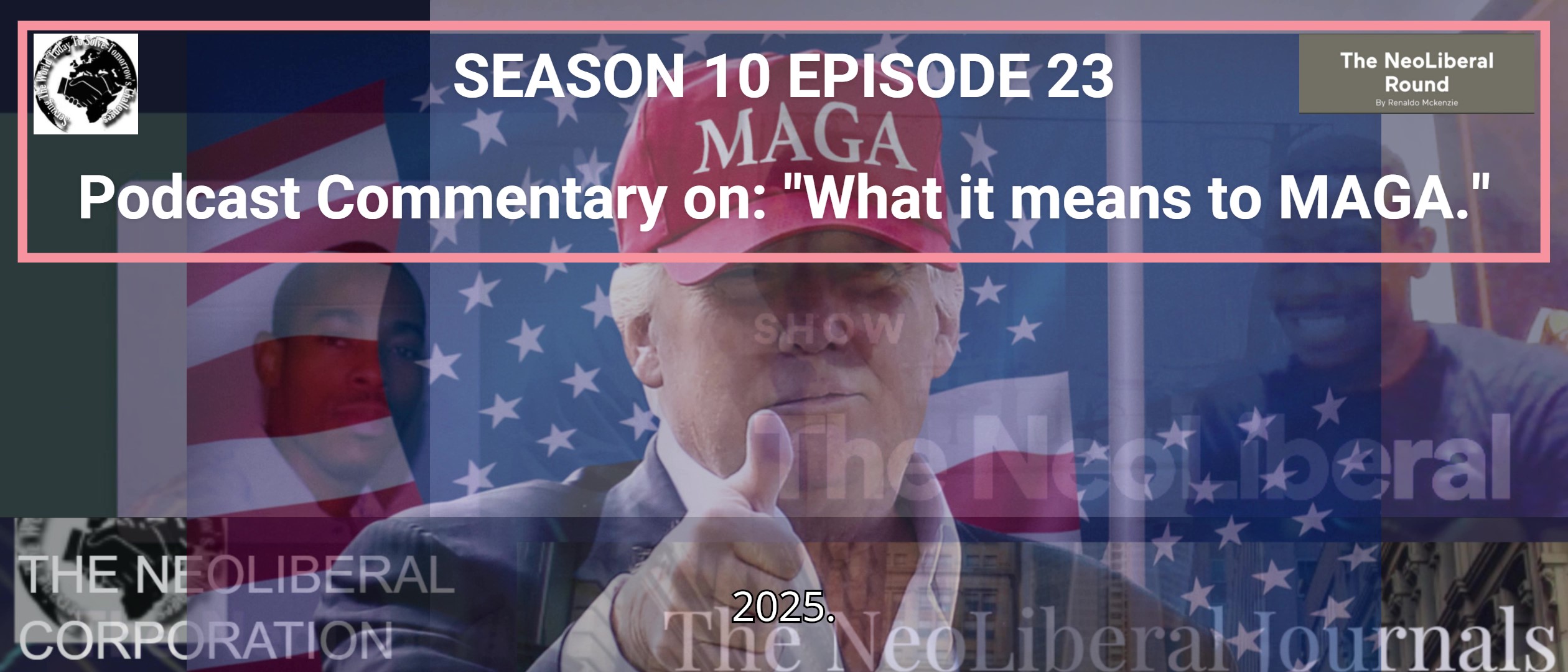Why Trump Won: MAGA, Project 2025, and the Transformation of America
By Renaldo McKenzie, The Neoliberal Journals
Recently, on The Neoliberal Round Podcast, I explored the driving factors behind Donald Trump’s electoral success and the implications of Project 2025. In this episode, we unpacked the complex intersections of race, demographics, and political strategy that shaped America’s recent elections and are poised to redefine its future.
The Election: A Racial Lens
An often-overlooked aspect of the 2020 elections was the racial dynamics in voter turnout. Over 70% of white voters—both men and women—cast their ballots for Donald Trump. Meanwhile, African American voters overwhelmingly supported Kamala Harris, with about 90% of Black women and 81% of Black men voting Democratic. These figures highlight a deep racial divide in voting patterns that underscores how identity politics shaped the electorate.
Kamala Harris intentionally avoided making the campaign overtly about race, knowing it might alienate potential voters. However, the racial undertones of the election were unavoidable, especially amidst growing fears about the “browning” of America.
The Browning of America and Its Consequences
For years, projections have shown that by 2025, minorities—Black and Brown Americans—could become the majority. This demographic shift has triggered existential fears among many white Americans about the nation’s identity. Concerns about immigration, cultural change, and economic displacement have fueled a backlash, manifesting in policies and rhetoric aimed at preserving what some see as the “soul” of the country.
Between 2008 and 2020, political discourse increasingly centered on immigration as a scapegoat for broader societal anxieties. Policies at the border, restrictions on asylum seekers, and the rhetoric of “taking back America” have been used to stoke fear and galvanize a particular voter base. These fears extend beyond demographics to cultural and economic concerns, such as the perceived erosion of traditional values and white dominance.
Project 2025: The Vision and the Reality
Project 2025, championed by Trump’s allies, is about more than political control—it’s a strategic effort to reshape the nation’s demographics, policies, and values. This initiative aims to:
- Restrict Immigration: The project seeks to maintain a predominantly white demographic by reducing the influx of immigrants, particularly those from non-white countries. Policies include tightening border controls and limiting paths to citizenship.
- Boost White Fertility Rates: Conservatives have pushed for restrictions on abortion, framing it as a way to preserve white birthrates. While abortion is often discussed as a moral issue, it is also seen as a demographic strategy to counteract declining white populations.
- Promote Religious and Cultural Conservatism: Efforts to reintroduce Bible teaching in schools and other conservative policies are part of a broader agenda to “restore” America’s identity.
- Economic Paradoxes: The crackdown on immigration could disrupt industries reliant on low-wage labor, creating economic challenges. Historically, undocumented workers have filled roles many Americans avoid, and their removal could lead to labor shortages, higher wages, and potential shifts toward unionization.
The Deportation Dilemma
A chilling aspect of Project 2025 is the construction of large-scale deportation facilities. Reports suggest plans to detain undocumented immigrants in camps that could function as modern-day indentured labor pools. Such a move raises ethical and legal questions about human rights, labor exploitation, and the future of immigration policy in America.
Looking Ahead
Trump’s win and the policies championed by his administration represent a broader cultural and demographic reckoning. At its core, Project 2025 is a response to a perceived threat to white dominance in a rapidly diversifying nation. But these policies have unintended consequences—economic disruption, social unrest, and a potential resurgence of labor organizing.
The conversation about race, identity, and power in America is far from over. As we approach 2025, our questions are profound: Can America reconcile its changing demographics with its founding ideals? Or will fear and division dictate the nation’s path?
At The Neoliberal Journals and The Neoliberal Round Podcast, we’ll continue to explore these pressing issues. Stay tuned as we analyze our world’s policies, trends, and movements.

Renaldo McKenzie is the author of “Neoliberalism, Globalization, Income Inequality, Poverty, and Resistance“. His forthcoming book, Neoliberal Globalization Reconsidered, will be available soon. For more, visit The Neoliberal Corporation or follow us on social media @RenaldoMcKenzie.
 Neoliberalism Goes on-sale November 25th, 2024.
Neoliberalism Goes on-sale November 25th, 2024.
Telephone us: 1-445-260-9198


